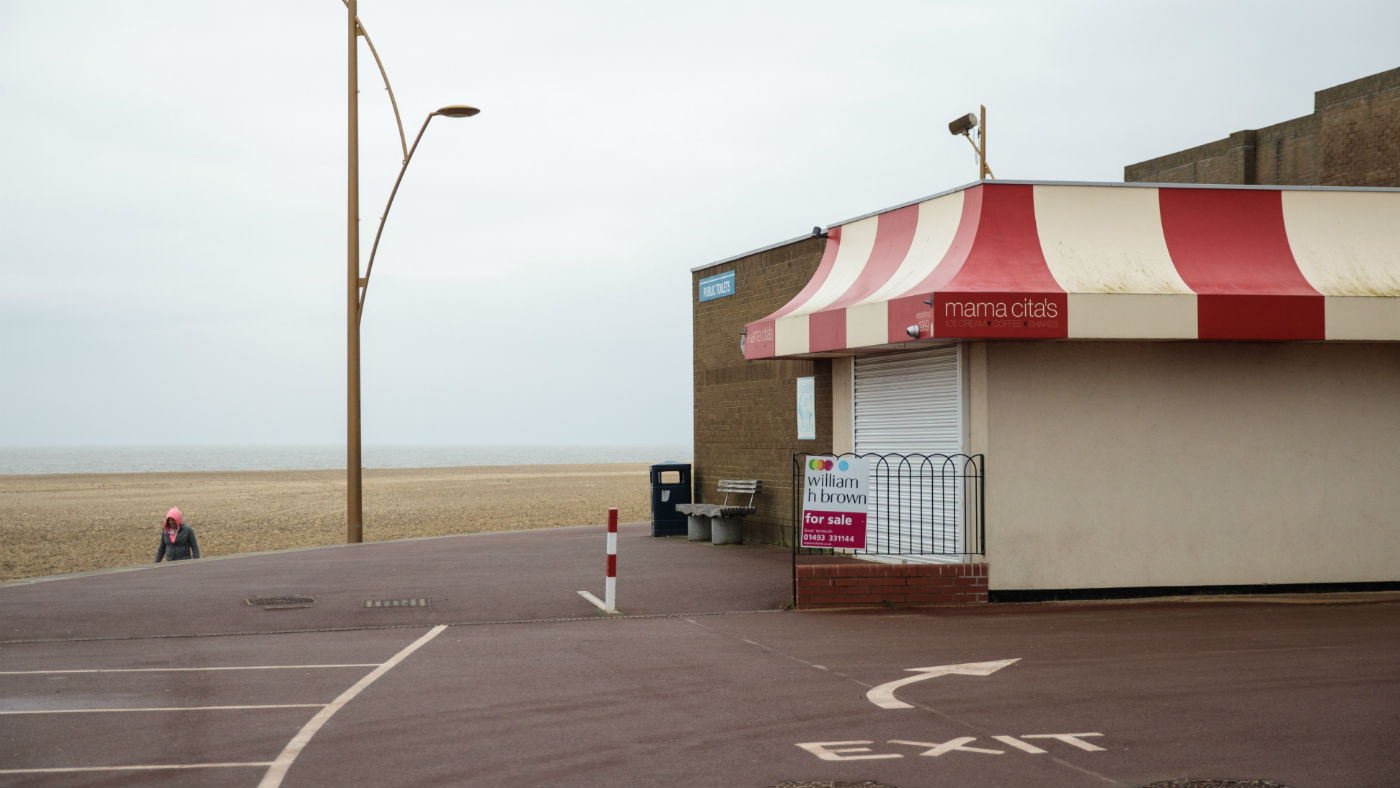Growing coastal poverty laid bare
Seaside towns are worst off for earnings, employment and education, a new study finds

A free daily email with the biggest news stories of the day – and the best features from TheWeek.com
You are now subscribed
Your newsletter sign-up was successful
Coastal communities are among the most deprived areas in Britain, according to a report on the growing economic disparities between different parts of the country.
The study, conducted by the Social Market Foundation and commissioned by the BBC, found coastal communities are among the worst off for earnings, employment, health and education.
Half of the ten UK local authorities with the highest unemployment rates for the first three months of the year - Hartlepool, North Ayrshire, Torridge, Hastings, South Tyneside and Sunderland - were on the coast.
The Week
Escape your echo chamber. Get the facts behind the news, plus analysis from multiple perspectives.

Sign up for The Week's Free Newsletters
From our morning news briefing to a weekly Good News Newsletter, get the best of The Week delivered directly to your inbox.
From our morning news briefing to a weekly Good News Newsletter, get the best of The Week delivered directly to your inbox.
Of the 98 local authorities with a coastline, 85 per cent had pay levels below the UK average in 2016, with employees in seaside communities paid about £3,600 less than the national average.
Ten of the 20 local authorities in England and Wales with the highest proportion of people in poor health were coastal, while the two authorities with the lowest proportion of over-16-year-olds who had degrees or higher apprenticeships were both by the sea.
The report's author, Social Market Foundation chief economist Scott Corfe, said a lack of infrastructure and local job opportunities was increasing levels of deprivation.
"Many coastal communities are poorly connected to major employment centres in the UK, which compounds the difficulties faced by residents in these areas," he said. This means that "not only do they lack local job opportunities, but travelling elsewhere for work is also relatively difficult".
A free daily email with the biggest news stories of the day – and the best features from TheWeek.com
Corfe also warned that some areas, particularly in the South East, "are pockets of significant deprivation surrounded by affluence - meaning their problems are often overlooked by policymakers".
The fact that coastal areas, many of which voted overwhelmingly for Brexit, are poorer and sicker than the rest of the country "isn't news", says James Kirkup in the Daily Telegraph. "What is news is the fact that the gap is getting bigger. Britain's coastal communities are falling further behind."
In 1997, economic output in coastal areas was 23 per cent lower than non-coastal ones. By 2015, that gap was 26 percentage points.
Despite the government recently announcing £40m in funding to help coastal areas by boosting employment and encouraging tourism, one problem indentified by the report is that there is currently no official definition of a coastal community.
The fact that these areas and the people who live in them, who by and large hail from the white working class, have no unique status in official planning or analysis "means the system finds them easy to ignore", says Kirkup.
-
 Political cartoons for February 16
Political cartoons for February 16Cartoons Monday’s political cartoons include President's Day, a valentine from the Epstein files, and more
-
 Regent Hong Kong: a tranquil haven with a prime waterfront spot
Regent Hong Kong: a tranquil haven with a prime waterfront spotThe Week Recommends The trendy hotel recently underwent an extensive two-year revamp
-
 The problem with diagnosing profound autism
The problem with diagnosing profound autismThe Explainer Experts are reconsidering the idea of autism as a spectrum, which could impact diagnoses and policy making for the condition
-
 BBC pauses probe into presenter ‘sex scandal’ as police take over
BBC pauses probe into presenter ‘sex scandal’ as police take overSpeed Read Met Police weighing up whether to launch criminal investigation as Rishi Sunak calls claims ‘shocking and concerning’
-
 Muzzling the BBC: what does Indian PM Narendra Modi have to hide?
Muzzling the BBC: what does Indian PM Narendra Modi have to hide?Under the Radar The Delhi government has blocked the airing of a documentary on Modi’s role in the 2002 Gujarat riots
-
 ‘Moving CBBC online isn’t modernisation – it’s dangerous’
‘Moving CBBC online isn’t modernisation – it’s dangerous’Instant Opinion Your digest of analysis from the British and international press
-
 Home Office worker accused of spiking mistress’s drink with abortion drug
Home Office worker accused of spiking mistress’s drink with abortion drugSpeed Read Darren Burke had failed to convince his girlfriend to terminate pregnancy
-
 In hock to Moscow: exploring Germany’s woeful energy policy
In hock to Moscow: exploring Germany’s woeful energy policySpeed Read Don’t expect Berlin to wean itself off Russian gas any time soon
-
 Were Covid restrictions dropped too soon?
Were Covid restrictions dropped too soon?Speed Read ‘Living with Covid’ is already proving problematic – just look at the travel chaos this week
-
 Inclusive Britain: a new strategy for tackling racism in the UK
Inclusive Britain: a new strategy for tackling racism in the UKSpeed Read Government has revealed action plan setting out 74 steps that ministers will take
-
 Sandy Hook families vs. Remington: a small victory over the gunmakers
Sandy Hook families vs. Remington: a small victory over the gunmakersSpeed Read Last week the families settled a lawsuit for $73m against the manufacturer